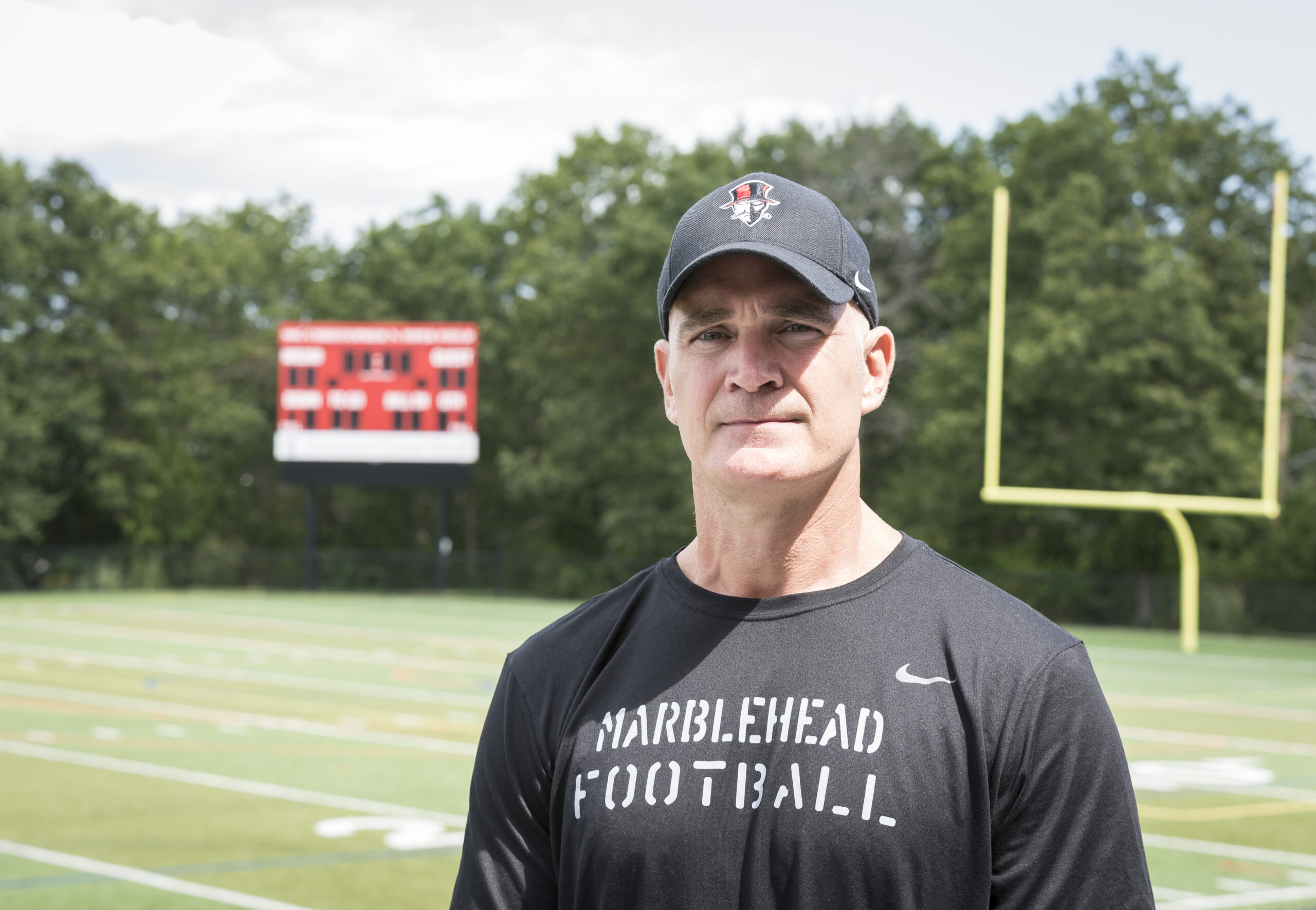Forty football teams across the state gathered at Bishop Fenwick High on Saturday for the 7v7 Northeast Regional. Coaches were also present – kind of.
In the pass-only, two-hand-touch competition, coaches were allowed to be on the sideline, but couldn’t do the root word of their job title: coach.
“I think it’s hard,” Lynnfield coach Pat Lamusta said. “Our time will come in August, but it’s hard.”
Marblehead’s Jim Rudloff said he was more of a friend, while Saugus’ Steve Cummings said it was like pulling teeth.
“It’s torture,” said Cummings, who was away from his players, but happily fist pumping after touchdowns. “I try to keep myself as far away from the sideline as possible. If I see something, I just make a little mental note and I can bring it up to a kid later on.”
Like Cummings – away from the action – Peabody’s Mark Bettencourt stood by and watched his players coach themselves.
“I can’t do anything,” Bettencourt said. “They know what they have to do. It’s not like they don’t know the offense, they don’t know the defense. It’s just going out and performing, doing their responsibilities, and making sure that all the small pieces build up to one machine.”
Classical’s Brian Vaughan couldn’t have agreed more.
“For us, I just want to watch some of my guys,” Vaughan said. “The older kids are coaching them up. It’s helping the seniors work on their leadership skills. It helps the younger kids learn some of the reps and some of the schemes.”
Every coach agreed that forcing players to mature was a positive. It was reminiscent of “Remember the Titans” when coaches Boone and Yoast didn’t interfere with Gary and Julius leading practices.
“You also want to see how the kids act together,” Rudloff said. “Are they going to be a part of the positivity on the sidelines, or part of the negativity?”
And in some cases, players have been teammates for years.
“You’re hoping the kids can remember the stuff they learned last year,” Rudloff said. “We’re not coaching. I’m here as a friend.”
For underclassmen, they could only get better on Saturday, according to Vaughan.
“We’re still young and still a little inexperienced,” Vaughan said. “With the quarterback going out and calling the plays, it’s good for them.”
Bettencourt and Rudloff combined for 15 wins last season. Just weeks away from doing it all over again, both coaches wanted to see how their players dealt with adversity.
“If a kid does get burnt on one play, the next play, does he come back and work twice as hard, or does he hang his head?” Rudloff said.
Adding it was an “entirely different ballgame” without linemen and crowds, Bettencourt was also looking to see players battle through obstacles.
“Are our guys in the right place, are they doing their responsibilities, are they being aggressive, are they building confidence as the tournament goes on, and are they handling adversity?” Bettencourt said.
Teams often had hour breaks between games. That said, what did “coaches” do during their downtime?
“The good part is that there are six teams we play who are here,” Cummings said. “So, not coaching, I get the ability to kind of walk around a little bit and just get eyes. So and so’s got a new quarterback – let’s take a look at him.”
Cummings also got to talk about his favorite thing: football.
“Just being able to walk around and talk shop with guys who do the same thing you do,” Cummings said. “It’s always a great time.”
A great time, indeed, as Cummings wished there were more events like Saturday.
“You look at these kids, they’re not on their phone, they’re not at home, they’re out here competing, they’re playing with their teammates,” Cummings said. “It’s just a great event.”

